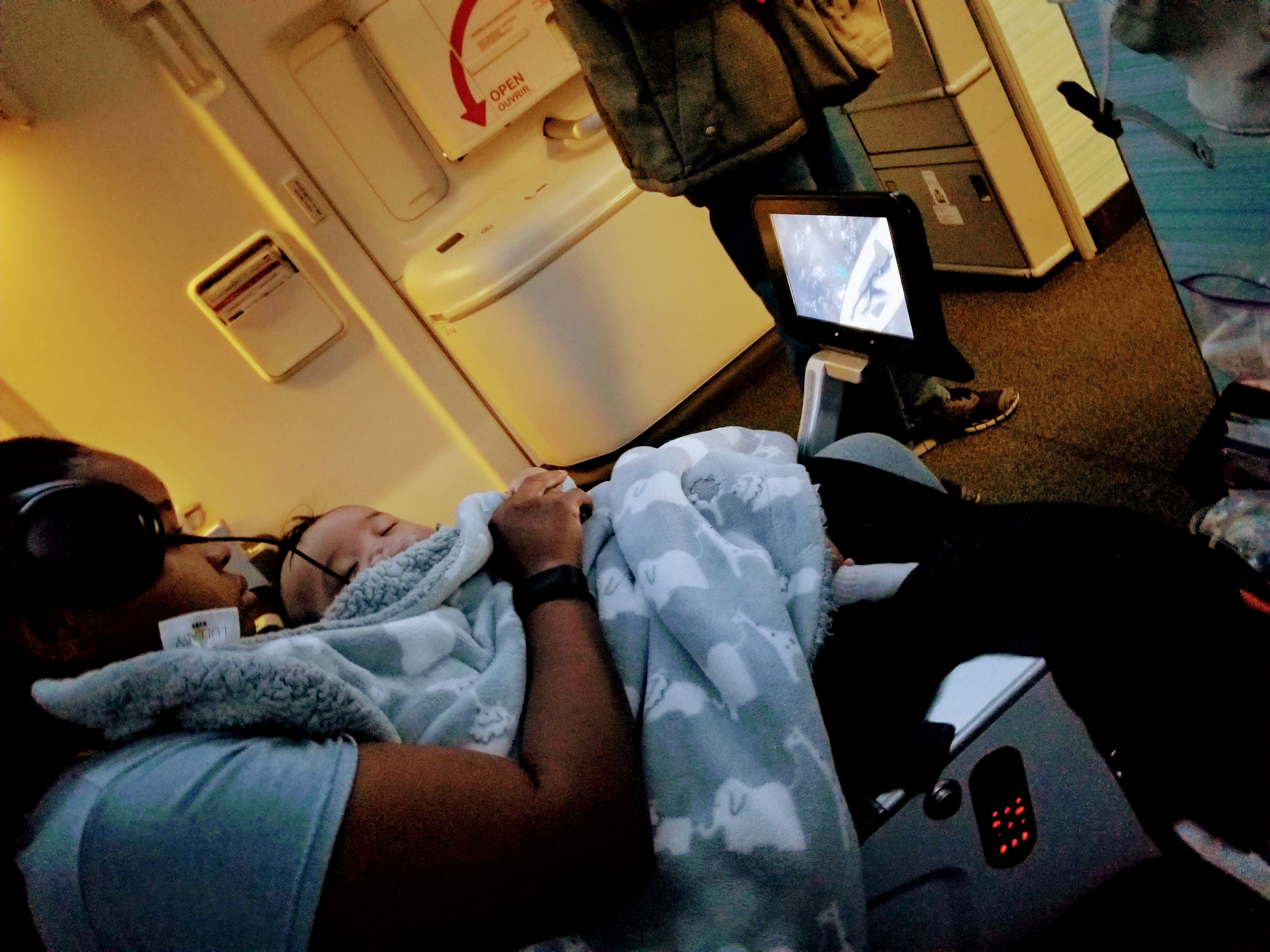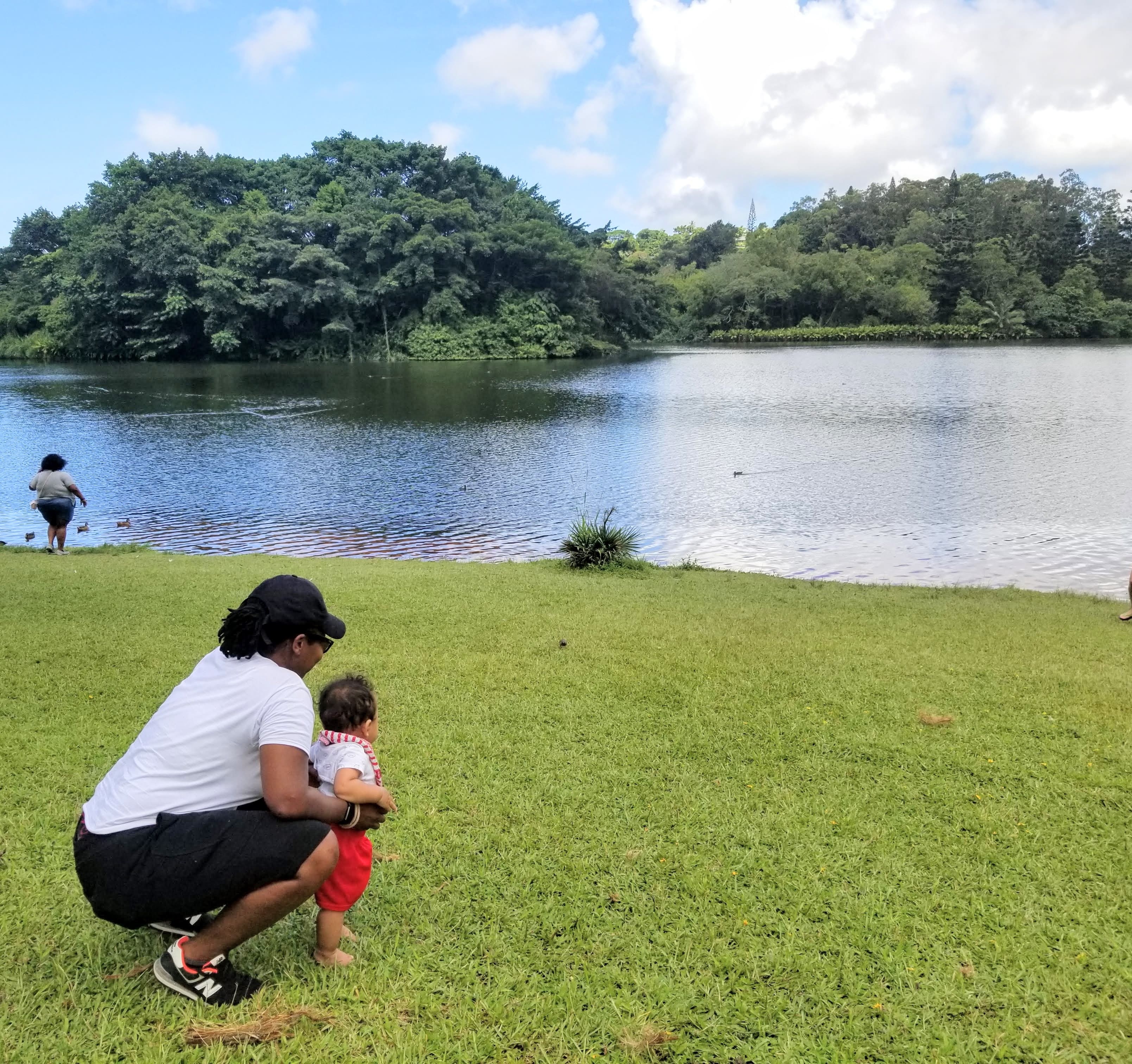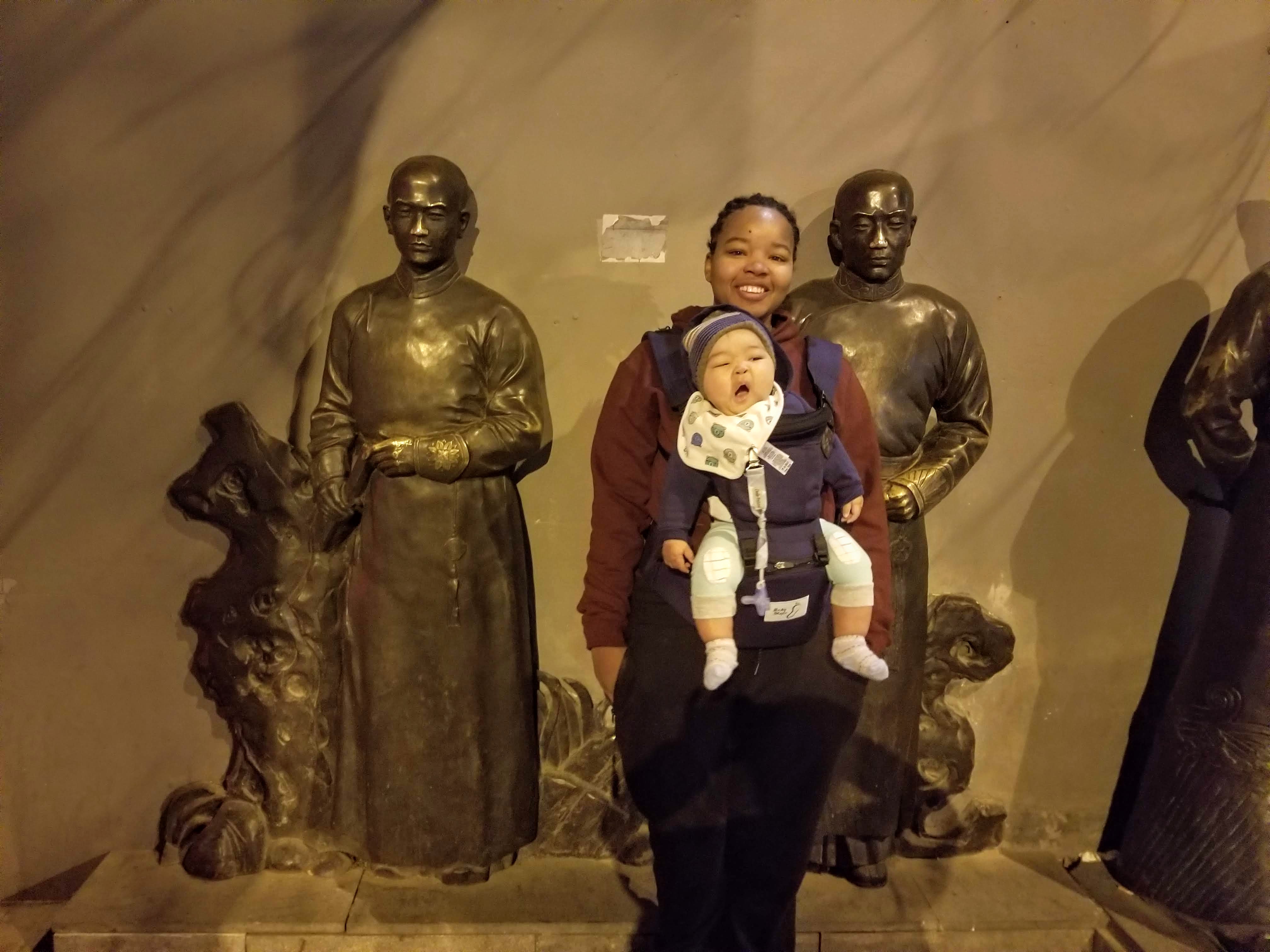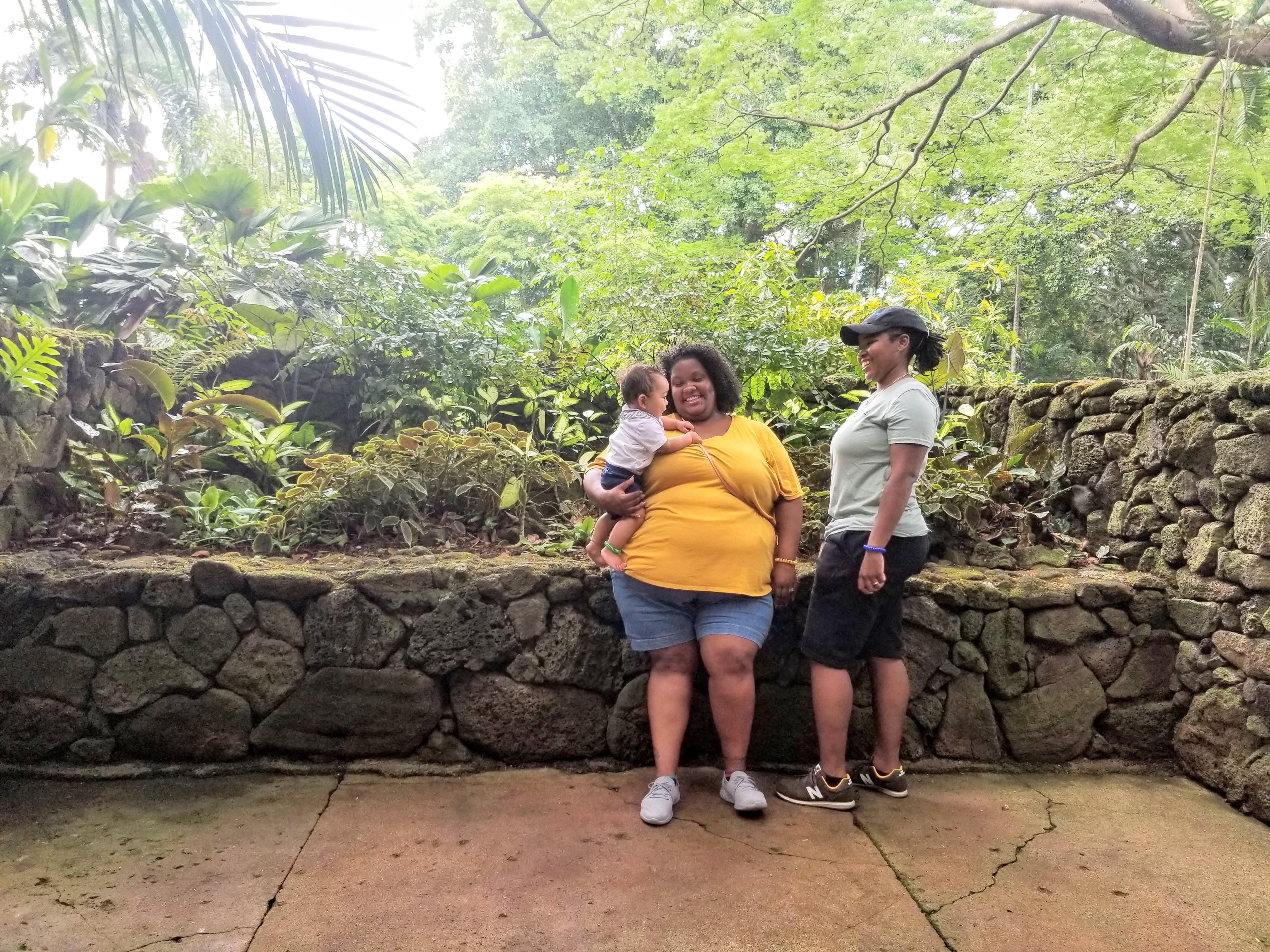Corritta runs the family travel blog: It’s a Family Thing. Her family and her decided to start travelling after their son was born and it helped her to combat postpartum anxiety disorder. She is going to share with us what travelling with postpartum anxiety is really like. Follow her on Instagram.
All opinions are the author’s own. This site contains affiliate links. We may receive a commission for purchases made through these links, at no extra cost to you.
My postpartum anxiety disorder symptoms started to appear after I returned to work just 7-weeks after giving birth. My first day of work my hands were shaking so much I couldn’t type. I was constantly thinking and worrying about him although he was with his other parent, I was scared he would know I abandoned him. Since I was breastfeeding, I would oftentimes go to the lactation office to cry.

I went to my doctor and he said there was nothing physically wrong with me and it was just the stress of being a first-time mom. I shrugged this off since my doctor didn’t seem to be worried.
After two months I started having severe unexplained chest pains. I was scared that I was going crazy because I went to several doctors’ appointments including a cardiologist and everyone was saying I was fine. I finally realised after speaking with a therapist I was suffering from postpartum anxiety disorder.
What is postpartum anxiety disorder?
Postpartum anxiety disorder is a close friend of postpartum depression. The major difference is postpartum depression often comes with a feeling of detachment, sadness, or a disconnection from the baby. Postpartum anxiety is more so a feeling of helplessness, excessive worrying, restlessness, and fear.

Postpartum anxiety can be difficult to spot amongst all of the feelings and hormonal changes that women go through after having a baby. Some of the symptoms include:
- Constant worry
- Racing thoughts
- Inability to sit still
- Dizziness
- Nausea
- Headaches
- Inability to sleep
- The constant feeling something bad is going to happen
How is postpartum anxiety treated?
There are different treatments for postpartum anxiety disorder with the most common being therapy. Speaking with a therapist can help ease the anxiety you feel after giving birth, since your body is going through so many different emotional, psychological and physical changes. Other treatments include:
- Exercise
- Meditation
- Relaxation techniques
- Music
If a therapist isn’t an option, family and friends could be a good alternative if you need someone to talk to. Support groups are also available for new mothers to share their experiences with women experiencing the same thing.
I have been dealing with my postpartum anxiety disorder by being open with my spouse about what I am feeling and more recently by travelling. Travelling make me happy and puts me in a space where I feel free.

Most people believe it will go away as the baby gets older, but that is not true. It can take up to two years after giving birth for your hormones to balance and if you are breastfeeding it may take longer. Although our son is currently 16 months old sometimes, I find myself having feelings of constant worry and fear.
How do I travel with postpartum anxiety disorder?
Our first international trip with our son was to Beijing when he was 4-months-old. We took this trip because I wanted to prove to myself that we could travel with a baby. Also that I can push myself to be in uncomfortable situations and would still be okay. We can be outside of our comfort zone and the world wouldn’t end, like I believed it would.
Read more in the ‘Travelling with a mental illness’ series:
During this trip, my biggest breakthrough was when we separated for a day and I went on a tour of Beijing without my spouse and son. I wasn’t worried, scared, or anxious, there was something that made me believe everything was going to be okay, I ended up going the entire day without an anxiety attack and that was the moment that changed my life.
I realised the 10 hours I spent every day I worked, I was filled with anxiety, fear, regret, and pain. Travel is what made me feel connected to my family and at ease. This prompted us to change our lives to become a fulltime travel family.
It has not been a “cure”, but rather served as treatment for me. I still have to exercise and meditate, but I am in a better place.
Excited to start your own travels?
Begin to explore the world with Lonely Planet’s Best in Travel 2020. Start reading about all the amazing places you can visit – and start to plan your first trip!
What are the hardest parts of travelling with postpartum anxiety disorder?
Fear: There is a constant fear that something will go wrong or an irrational fear our son will be taken away from us.
Loneliness: It can be lonely travelling with postpartum anxiety because no one knows what you are going through. Unlike, when you are home where there is a stronger support system.
All of this changed while we were travelling in China with our baby, I learned the world wasn’t as scary as I thought it was.
What are the best parts of travelling with postpartum anxiety disorder?

Family: I am able to be with my family without the constant worrying.
Freedom: I do not feel scared or anxious because I am stuck in a box (work).
Clarity: Having the ability to think clearly and meeting people from different parts of the world. Seeing how other cultures value family is inspiring.
Reduced symptoms: I do not have a constant fear or feeling of worry. My chest pain has gone away completely. Since returning from Beijing we have been on many family trips to Oahu, a road trip to Colorado, Cabo San Lucas, and Las Vegas.
My mind has been put at ease because everyone has been so kind to us. We have travelled to three countries and over five states in the last year and it has been so much fun. Travelling has restored my faith in the kindness of humanity. The world is not as scary as I once believed.
Keep count of all the countries you’ve visited!
A great present for any traveller. Scratch off all the countries you’ve visited with this Scratch the World Travel Map.
Don’t be afraid!
Experiencing postpartum anxiety promoted me to re-evaluate what is truly important in life. If you feel something is not right or you do not feel okay, seek help. Postpartum anxiety disorder can be a difficult diagnosis, keep pursuing if you believe you are not being heard. There is nothing to be ashamed of and you will be stronger for it.

I was able to change our lifestyle so that we could spend more time together as a family. I realise this may not be possible for everyone, but finding your passion and pursuing it is okay.
Do not feel guilty for going after what you want in life. For us, that was being able to travel and spend more time as a family and we are doing it.
Do not let the stigma of mental disease stop you, let it be your sign of strength!
If you are struggling, please ask for help:
- UK – Samaritans – 116 123
- USA – Mental Health America – 1-800-273-8255
- Worldwide – See this list.


Leave a Reply